Authored by Nikolas Kozloff
"Ambivalent" Relationship on Drug War
As the political relationship deteriorated between the Bush administration and Chávez, so, too, did collaboration on the U.S.-sponsored drug war. Recently released cables document the testy and "ambivalent" dynamic, with U.S. ambassador William Brownfield commenting that Chávez's anti-drug czar Luis Correa appeared to be "penalizing" a non-governmental organization called Alianza "for having too close of a relationship with us."
Brownfield was rather suspicious of Correa, noting to his superiors that the Venezuelan was a professional intelligence officer. Before taking up his post heading up anti-drug efforts, Correa directed a technical unit that targeted the U.S. Mission. Correa was responsible for monitoring U.S. Embassy communications with teltap and cellular intercept equipment. "Notches on Correa's belt" included turning a U.S. government informant and "penetrating an unclassified email system." Correa, Brownfield explained, directed a computer hacker who was able to obtain Embassy staff's e-mails and conducted surveillance of DEA agents, infiltrating the organization in the process and sabotaging equipment.
Not surprisingly, bilateral anti-drug cooperation almost hit rock bottom, and the only active joint project consisted of a port security project. After months of delay, the Venezuelans authorized U.S. officials to conduct an anti-drug training session. However, several no-shows failed to attend as they had become "apprehensive" about political persecution. Correa also snubbed the U.S. by refusing to attend the event, claiming that a Chávez coup plotter served on the board of directors of Alianza which sponsored the event.
The US used "terrorist-listing" as a way to influence the peace talks between the National Democratic Front of the Philippines (NDFP) and the Government of the Philippines (GPH)
Confidential and secret cables released by Wikileaks from the US embassies in Manila and The Hague in the Netherlands show how three governments worked together to designate as “terrorist” Jose Maria Sison, chief political consultant of the National Democratic Front of the Philippines in peace talks with the Manila government. The move may have been part of Philippine government’s pressure tactics on the NDFP during peace negotiations. However, the move did not yield the Philippine government’s desired results.
Sison, the Communist Party of the Philippines and New People’s Army were included in the US terror list in August 2002, right after the Manila visit of then Secretary of State Colin Powell. Sison was soon after also included on the EU “terrorist list” of organizations and individuals with sanctions upon the requests of the US and PH governments. His bank account was subsequently frozen, denying him social benefits accorded to refugees living in the Netherlands.
Terrorist-listing as leverage
The US, Dutch and Philippine governments engaged in acts that were inimical to the peace talks between the NDFP and the Philippine government. The Philippine government used the terrorist listing as leverage against the NDFP. There was intense pressure was brought to bear on Sison: from the deprivation of social benefits, threats to his life, and even arrest and detention. The matter of the terrorist listing became a prejudicial question in the peace talks.
In a 2005 meeting (05MANILA655) with US Ambassador Francis Ricciardone, Foreign Affairs Secretary Alberto Romulo said that the NPA’s “delisting as a foreign terrorist organization depended on a demonstration or proof of sincerity… such as entering into a cease-fire or new peace talks.”
Authored by Nikolas Kozloff
"Loco Chávez Time"
Underscoring the highly sensitive political environment in Venezuela, U.S. diplomats alerted Washington in 2008 to an odd incident which had occurred at the Caracas airport. One evening, the manager for American Airlines in Venezuela called the U.S. Embassy to report that the captain and crew of flight 903 were being held at the airport. What was the reason? Apparently, upon landing a crew member had remarked "'Welcome to Venezuela. Local Chávez time is' X."
One year earlier, Venezuela had created its own time zone, and most likely the crew member was simply reminding the passengers of this fact so as to turn their clocks back 30 minutes. However, one passenger thought the crewmember had actually said "loco Chávez time" while Venezuelan immigration officials claimed the actual quote was "the hour of the crazy Chávez and his women." American Airlines diffused the situation by flying the captain and crew out of Venezuela shortly thereafter and offering profuse apologies to Chávez authorities.
"Fascist" Elements Within Chávez's Coalition?
In another unrelated cable, the U.S. Embassy made explosive and incendiary charges regarding Chávez's inner circle. During a lunch, a "well respected political economist" told embassy staff that Minister of Public Works and Housing Diosdado Cabello "was expanding his network of corruption into the financial sector." Cabello, the source claimed, had joined with several other veterans of Chávez's 1992 attempted coup and this "fascist and military" trend "was gaining ascendancy within Chavismo" to the detriment of older leftists.
Authored by Nikolas Kozloff
Drug Trafficking Airline?
More incendiary revelations from WikiLeaks: now comes a cable from 2008 reporting on U.S. wariness of Aeropostal, an airline whose owners, the Makled family, were "Venezuela's preeminent drug traffickers." When Aeropostal sought to extend its flights to the U.S., the American Embassy in Caracas recommended that the request be denied. Furthermore, diplomats believed that the Chávez government's decision to allow the Makleds to purchase Aeropostal "sheds further doubt on Venezuelan aviation security."
The Defense Intelligence Agency (DIA) was so worried about Walid Makled that it issued a report entitled "Venezuela: Business Entrepreneur Dominates Cocaine Trade." The report asserted that Makled leveraged "his involvement in the transportation industry to facilitate drug shipments and provide cover for his own illicit activities."
Speaking to the Americans, an Aeropostal representative rejected the allegations but admitted that the new owners of the airline "know nothing about aviation." U.S. diplomats however were unconvinced, remarking that "this claim of ignorance about aviation seems odd, when according to the DIA report, the Makleds own a small airport they use to ferry drugs to Mexico twice a week."
Dodd to Chávez: Give Peace Corps a Chance
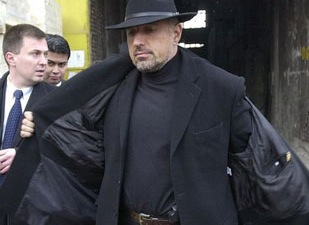
Bulgarian Prime Minister, Boyko Borisov, in an interview for the political TV show “Face to Face” with host, Tsvetanka Rizova, September 4, 2011. (Video here):
TR: There was information, released by WikiLeaks, showing your position on GMO had been quite hypocritical.
BB: Released by whom?
TR: Hmm, I don’t know if you are aware that your ministers went to…
BB: I do not read them.
TR: Well, let me tell you. Your ministers…
BB: I do not read them.
TR: Your ministers went there and have said that due to public pressure we will not plant GMO crops, but otherwise we want them and count on Europe to make us do it.
BB: I think that…
TR: What are our guarantees that you are sincere when it comes to the environment?
BB: (thinking) What minister went there?
TR: Miroslav Naydenov (Agriculture Minister) is cited there.
BB: I asked him; he said he did not go. And he did not discuss any such matter.
...
BB: And about GMO… The way you presented it, it looks like someone had been a hypocrite.
TR: Yes, this is how it looks like, according to WikiLeaks; it was simply hypocritical.
BB: Who is WikiLeaks?
TR: How come, who is WikiLeaks? (BB: Who does it represent; who decides…) The ones who release the cables…no one has denied these cables so far.
BB: Yes, because no one wants to deal with them, because once they start denying them…
TR: Don’t you think that if this was a lie, there would have been some official statement? Everyone keeps quiet; it means they are true.
BB: If they were true, they would have published them all, from A to Z, not selectively, to choose and release depending on when and what is convenient… in connection…I am talking about those on Bulgaria.
TR: We must come to conclusion now.
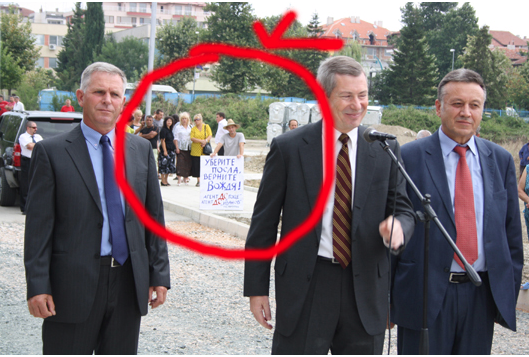
Your Excellency,
One year ago you were opening a bridge connecting the Roma district in Tsarevo with the rest of the Black Sea town.
You were standing among the audience next to the town’s Mayor, Petko Arnaudov, and Regional Governor, Konstantin Grebenarov. Both are former members of a party, declared criminal by current Bulgarian legislation – the Bulgarian Communist Party, and are agents of the macabre Communist State Security, DS.
I stood behind you with a large portrait of Lenin. The following message was written on its back: “Уберите посла, верните Вождя. Агент ДС “Гоце” и Агент ДС “Иванов” град Мичурин” (In Russian, meaning “Take away the Ambassador, bring back the Leader. DS Agent Gotse (which is the alias of current Bulgarian President, Georgi Parvanov, as Communist State Security Agent) and DS Agent, Ivanov (which is the alias of the Mayor Petko Arnaudov), town of Michurin).
I was hoping that you, personally, and the attending media would notice the board and ask me why I was standing there and what this curious installation meant. But the first one to notice me, even before you, was the Mayor, who became outraged and said: “Who is the Gipsy with Lenin?”
Police arrived and took me away to the precinct where I received a citation for violating public order, even though I did not violate anything. They also confiscated my sign. I suppose meanwhile Agent Ivanov (Petko Arnaudov) took you to an official dinner where you proposed toasts for the integration of Roma.
Minutes before the policemen took me away, I saw you hugging and kissing Agent Ivanov. It was truly touching. The Roma applauded, the municipal female workers were taking deep breaths and were moved.
 Photo credit AFP.
Photo credit AFP.
We all know the reasons why Hezbollah is keeping its arms in Lebanon, despite the liberation of the South from Israeli occupation (except Sheba’s farms). This is directly related to an Iranian decision facilitated by Syria, so it’s much more than a matter of pure ‘national interest’. We, in Lebanon are too nice that we serve the ‘whole region’s interests’, and we have been doing so for almost centuries.
But it’s different when you hear it from the Speaker Nabih Berri straight to the American Ambassador. Anyway, this is what the US cable 01BEIRUT3057 released by Wikileaks told us. By the way, our politicians don’t tell us this in public, or when they stand for elections, although we know it, but they are proud to admit to the big powers that they are not masters of their own destiny, and they are just pawns for other ‘big powers’. Ironically, Nabih Berri accuse his Lebanese political opponents of being pawns to their American masters (which is true in some examples). Is this some type of schizophrenia?
The cable goes back to 2001, 18 months after the Israeli withdrawal from South Lebanon. In it, Berri said that the path Hizballah chooses (supposedly provocative or passive, or to disarm or not) would depend on the course of US-Iranian relations…then Bla bla bla on Sheba’ farms…then Berri predicated that there would be no end to cross-border attacks until there was a comprehensive peace agreement. Ok, I don’t know, they keep tell us that Hizballah’s arms are there to defend Lebanon (yes, but may be on the way).
Today’s release of all Wikileaks cables included the complete set of cables from the US embassy in Manila. Most interesting are the cables that deal with meetings between the Philippine government and the US embassy in the context of Gloria Macapagal Arroyo’s fight for political survival amid allegations of election fraud. Cables reveal that ranking Arroyo government officials were already contemplating the declaration of a state of emergency to crackdown on opposition groups.
In 2005, wiretapped phone conversations involving the president and an election official were leaked to the public. Malacanang at first tried to deny the authenticity of the tapes yet at the same time sought to suppress their dissemination. In the tapes, Arroyo was asking Comelec commissioner Virgilio Garcillano to help secure her 1 million vote lead over nearest rival Fernando Poe, Jr.
In a confidential US embassy cable dated June 17, 2005, the US embassy candidly acknowledged that the voice on the “Garci tapes” was that of the president. “Garcillano could be a key witness. He is apparently the person President Arroyo is speaking with in the audiotape,” the cable said.
“Snippets of the tapes featuring what certainly seems to be the President’s voice have even been re-mixed with music to make what is becoming a very popular ring tone for cell phones,” the embassy noted.
However, in an earlier cable, the US embassy said it received transcripts of the “Garci tapes” several weeks before their release, but noted there was no smoking gun to link Malacanang to election fraud.
In the same cable, it was revealed that the Arroyo government, through two officials, suspected the US of involvement in the release of the Garci tapes but the US embassy was quick to deny this.
Thousands took to the streets to demand Arroyo’s ouster or resignation. A broad anti-Arroyo united front had taken shape.
Emergency rule now an option
From 2004-2010, the Philippines witnessed one of the worst waves of human rights violations in its history. Hundreds of activists were killed or abducted. Hundreds more were arrested and faced with trumped-up charges. The magnitude of the abuses caught the attention of the international community. The issue also further isolated the regime of Gloria Macapagal Arroyo. The main suspects in the killings and disappearances were state security forces.
There were numerous embassy cables on the US position regarding extrajudicial killings in the Philippines. My own estimate is that there were more than 40 cables that referenced extrajudicial killings in the Philippines. These cables ranged from scenesetters for visiting US officials, to actual reports on the actions taken by the US embassy and the Philippine government on EJK’s.
But while there were strong statements of concern to address the killings of activists and journalists, the US continued to provide economic and military aid to the Arroyo government. While the US said “there’s more that needs to be done”, the US also noted progress in the human rights situation as well as Arroyo’s “seriousness” in addressing the problem.
The Philippines remains the biggest recipient of military aid in this region of Asia, receiving some $30 million annually in Foreign Military Financing, education and training as well as Excess Defense Articles. Human rights issues in the country must be taken in the context of US support for Philippine security forces. With the nationwide phenomenon of extrajudicial killings in the Philippines, a feat that can only be accomplished by state security forces, there is a valid perception that US tax dollars funding of human rights abuses committed by the AFP.
 Photo credit GlobalVoicesOnline.
Photo credit GlobalVoicesOnline.
Who said that CIA didn’t know where Imad Mughniyeh was, or what was his job, or didn’t have any hints!?
This is from Wikileaks 95BEIRUT2749 cable released 3 days ago, in its para 8:
"for what it is worth, papers also report trends which suggest business as usual for Hizballah. The often inaccurate daily ‘Nida Al-Watan’ reported the re-election of Imad Mughniyah as the central security chief, with four assitants named Mustafa Badr Ad-Dine …"
Have you noticed who was mentioned too? Yep, the suspect in Rafiq Hariri’s murder as per the Special Tribunal for Lebanon (as of 2011), Mustafa BadrEddine. What a coincidence!
Ironically, the partisan newspaper Nida Al-Watan was right in this reporting. The cable is written in a tone suspecting this report, with no further comment on Mughniyeh who was one of the most wanted men by the CIA at the time. For me, it seemed business as usual to the cable author.
It’s not clear why the US didn’t make a big fuss out of it in Lebanon or with its government. It may be because they knew they couldn’t reach him in diplomatic means as they would have had to go via Syria, Iran and Hezbollah. And they may have simply waited for 9 years before they got him in their democratic way.
In my ‘Lebanon, the medieval Ottoman country’ post, I described 14March leaders as a bunch of sectarian warlords. I was not indicating only to their history during the Lebanese civil war, but rather to their current and recent history in peace time.
These leaders are currently advocating building a civil unarmed society in Lebanon (which is their main argument against Hezbollah), but in reality they do not mind getting armed to fight Hezbollah. I think they surely serve foreign interests in a way or another too, or at least they accept to be used. Let’s be practical here, we know how international politics is conducted, and politicians have to exploit international balances and political opportunities, and this is fine. But to ‘exploit’ opportunities to go back to civil war? I am not sure about that.
So the biggest scandal of all, which was revealed by the recently released American diplomacy cables by Wikileaks (and Al-Akhbar newspaper in Lebanon), was their readiness, intention and initiative to seek arms. I don’t deny that Hezbollah was acting like a militia then and still, but this problem surely can’t be solved by having other ‘too many militias’. After 25 years of civil war (1975-1990), 200,000 estimated fatalities, 1 million wounded, and 350,000 displaced person, I am completely baffled that some Lebanese leaders and their supporters still believe that military fights can sort out political and social problems on the ground.
I list below the released cables with links to the original source, which show the Lebanese leaders hypocritical and stupid mentality:
Authored by Nikolas Kozloff
As more and more WikiLeaks cables get released, the Brazilian-U.S. diplomatic relationship has become increasingly illuminated. Though somewhat wary of each other, Washington and Brasilia sometimes saw eye to eye on matters of geopolitical importance. Take, for example, both countries' handling of Venezuela's Hugo Chávez. Under the helm of Luiz Inácio "Lula" da Silva, Brazil cultivated a strategic alliance with Venezuela and publicly the two nations embraced South America's "pink tide" to the left. Yet, WikiLeaks documents reveal that Brazil may have shared Washington's concern over Chávez's rising geopolitical importance, particularly in the Caribbean theater.
During the Bush years, American diplomats kept a close bead on Venezuela's growing partnerships in areas far afield. In Jamaica, for example, U.S. officials conducted a "sustained effort to dissuade" the authorities from supporting Chávez's bid for a seat on the United Nations Security Council. Concerned over Venezuela's rising star in the region, the Americans met with the Jamaican political opposition. Writing to her superiors in Washington, U.S. ambassador in Kingston Brenda Johnson expressed "concerns over the influence of Venezuelan money and energy supplies in Jamaica in the years ahead."
Monitoring Chávez in Jamaica
During a local cricket match, Bruce Golding of Jamaica's opposition Labour Party approached the ambassador to request a meeting. Asking that the U.S. hold the information in "strict confidence," Golding revealed that his party's concern over Chávez had "heightened in recent weeks." Confidentially, he continued, a "senior person in the government" had passed him "sensitive inside information," and "a number of persons within the government" were "frightened over the secrecy" concerning Jamaica's official dealings with Chávez.
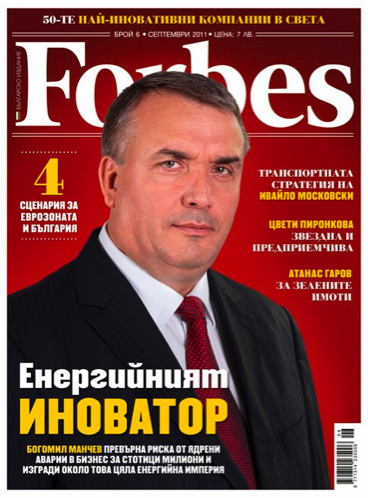
This week edition of Forbes - Bulgaria features Bogomil Manchev on the cover page. Manchev who's presented by Forbes as an "energy innovator" has been exposed in a secret diplomatic cable from Sofia, revealed by WikiLeaks. Bivol reminds the excerpts about Manchev from the cable named DIRTY ENERGY: CORRUPTION AND LACK OF TRANSPARENCY PLAGUE BULGARIAN ENERGY SECTOR [06SOFIA1691], sent 2006-12-20 by the chargé d'affaires in the US Embassy in Sofia - Alex Karagianis
BULGARIA'S ENERGY MAFIA: BOGOMIL MANCHEV ¶7. (C) Three names always mentioned as key players in Bulgaria's so-called "energy mafia" are Bogomil Manchev from Risk Engineering, Krassimir Georgiev from Frontier and Hristo Kovachki. Manchev and Georgiev have been omnipresent in the sector since the early 1990s, while Kovachki is considered a new player. ¶8. (C) Bogomil Manchev's presence in the energy field, particularly the nuclear sector, is pervasive. His engineering and consulting company, Risk Engineering, founded in 1992, got its start working as a subcontractor for Westinghouse for a EU Phare project related to Kozloduy's Units 1-4. From there, Manchev and Risk's influence grew as he won successive Phare projects for improving safety and security measures at Kozloduy Units 3 and 4, preparing documents for the development of Bulgaria's uranium mines in Simitli and Dospat, assessing a potential national storehouse for radioactive waste, etc. ¶9. (C) By the time of Prime Minister Simeon Saxe-Coburg Gotha's
From Novinite.com
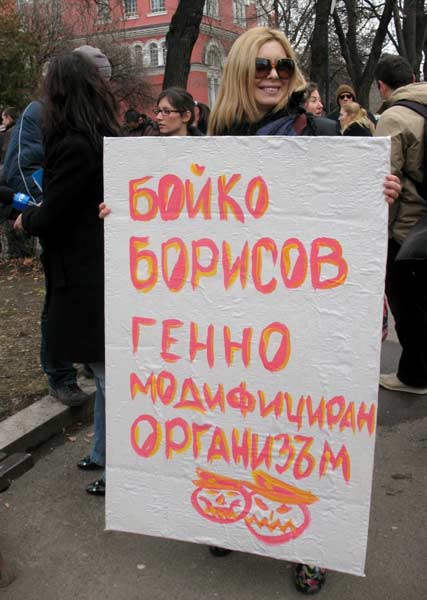
Bulgaria's legislation on Genetically Modified Organisms (GMO) has been carefully followed by the US Embassy in Sofia.
The information comes from several US diplomatic cables, (one by current US Ambassador in Sofia, James Warlick), which were released by WikiLeaks and their Bulgarian partner, the site for investigative journalism Bivol.bg.
According to the cables, GMO supporters in Bulgaria are actively backed and financed by the American Embassy, as Bivol writes.
In a cable, sent in 2006, Charge d'Affaires, Alex Karagiannis, informs the US Department of State that the main obstacle for the passing of more liberal GMO legislation has been opposition coming from the President of the Bulgarian Academy of Science (BAS), Ivan Juchnovski.
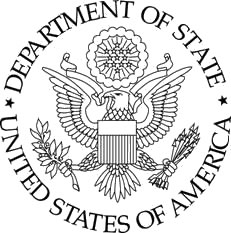
Contents
1. Introduction
2. Data Resources
3. Revelations
4. WL Central Coverage
.
A momentous release by WikiLeaks of 251,287 US diplomatic cables started on November 28, 2010 in conjunction with The Guardian, Le Monde, El País, Der Spiegel and The New York Times. Since then, the original media partners have left the media partnership, and others have joined, in various regional arrangements.
"The cables show the extent of US spying on its allies and the UN; turning a blind eye to corruption and human rights abuse in "client states"; backroom deals with supposedly neutral countries; lobbying for US corporations; and the measures US diplomats take to advance those who have access to them," said WikiLeaks on the introduction page for the release.
Besides exposing questionable practices on behalf of world governments, the cables constitute an immense gift to history and contemporary journalism, presenting a dynamic and systematic picture of world diplomacy, in the painstaking detail required by the U.S. Department of State. Few events unfolding on the contemporary world stage go without context in these State Department cables. A critical reading of the cables bequeaths a deep understanding of local and regional politics, and the structure of world governance, and is invaluable to journalists, scholars and conscientious citizens.
As of the Monday 22nd of August, 2011, Wikileaks started to release massive amounts of cables at once, by region, and invited its supporters to aid it in crowdsourcing the scanning of the materials. This process is ongoing.
More accurate archive with searching tool: http://trunk.ly/wlfind
Rough translation, apologies. Original at Der Spiegel
Former Wikileaks spokesman Daniel Domscheit-Berg claims to have destroyed more than 3,500 unpublished files that had been sent from unknown informants and are now apparently lost irrevocably. These are documents which were stored until the late summer of 2010 on the Wikileaks server and were taken by a group including Domscheit-Berg upon their leaving the organization. Domscheit-Berg has "in the last days shredded" the files "to ensure that the sources are not compromised," said Domscheit-Berg. He said WikiLeaks founder Julian Assange could not guarantee a safe handling of the material. In the data base was among other things, the so-called "no-fly list" of the U.S. government, on which the names of suspects were listed, which are prohibited from entering an aircraft. Assange said the material would also have insider information from 20 right-wing organizations. Domscheit-Berg would not confirm that. Assange had been asking him to return the data since early this year.
Previous WL Central coverage here.
Sat Aug 20 23:41:31 2011 GMT
Five days short of a year ago, on 25 August 2010, WikiLeaks suspended former employee "Daniel Domscheit-Berg". Over the last 11 months, we have tried to negotiate the return of various materials taken by Mr. Domscheit-Berg, including internal communications and over 3000 unpublished, private whistleblower communications to WikiLeaks. Mr. Domscheit-Berg has repeatedly attempted to blackmail WikiLeaks by threatening to make available, to forces that oppose WikiLeaks, these private communications and to which Mr. Domscheit-Berg is not a party. He has stated he will commit this action, should WikiLeaks move to charge him with sabotage or theft. Mr. Domscheit-Berg has refused to return the various materials he has stolen, saying he needs them, solely, to carry out this threat. Mr. Domscheit-Berg has already, secretly, and with malicious intent, disclosed portions of the private communications content to other parties, to the harm of WikiLeaks.
The negotiations have now been terminated by the mediator, Andy Müller-Maguhn, who has stated that he doubts Mr. Domscheit-Berg's integrity and claimed willingness to return the material and that under those circumstances Müller-Maguhn cannot meaningfully continue to mediate. In response, Mr. Domscheit-Berg has stated that he has, or is about to, destroy thousands of unpublished whistleblowers disclosures sent to WikiLeaks. The material is irreplaceable and includes substantial information on many issues of public importance, human rights abuses, mass telecommunications interception, banking and the planning of dozens of neo-nazi groups. Our sources have in some cases risked their lives or freedom attempting to convey these disclosures to WikiLeaks and to the public.
As a matter of policy and implementation WikiLeaks does not collect or retain source identifying information, so fortunately, source identities for this material are not significantly at risk.
Sat Aug 20 23:25:00 2011 GMT
WikiLeaks does not record or retain source identifying information, however the claimed destruction of documents entrusted to WikiLeaks between January 2010 and August 2010 demands the revelation of inside information so sources can make their own risk assessments.
Early in 2010, Daniel Domscheit-Berg, (then "Daniel Berg", "Daniel Schmitt") (born 1978), who was responsible for keeping selected WikiLeaks backups, met and entered into a relationship with Anke Domscheit-Berg (then, "Anke Domscheit") (born 1968) who described her job title as "Director Government Relations" for Microsoft, Germany.
DDB told me that ADB's role was to interface with the German government on behalf of Microsoft. He was proud that he had been to a party at the German ministry of the interior, as ADB's consort, and that ADB was on intimate terms with senior figures in the German government and bureaucracy.
DDB told me that he had moved into ADBs house in Berlin, without any counter-intelligence cover, going so far as to place his legal name on a street visible mail box and the interior door and that he would work from this location.
At this point WikiLeaks issued a policy directive that DDB not be permitted contact with source material.
ADB and DDB officially married within a few weeks and changed their surnames to "Domscheit-Berg".
DDB secretly, and in clear violation of WikiLeaks internal security directives, recorded internal WikiLeaks encrypted "chat" conversations. He initially publicly denied having done so, but attempted to place many of these recordings into his ghostwritten book, most of which were rejected by his publishers' lawyers as violations of german privacy law. Others he secretly conveyed to hostile media, such as Wired magazine, which had been involved in the arrest and persecution of US intelligence analyst Bradley Manning.
Authored by Nikolas Kozloff
From the Monroe Doctrine, which was aimed at curbing the encroachments of European powers in the nineteenth century, to Cold War foreign policy, designed to forestall the geopolitical machinations of the Soviet Union in the twentieth century, Washington has stopped at nothing in its bid to maintain power and prestige within its own regional "back yard" of Latin America. But with all of those rivalries now a relic of the past, the U.S. is moving on to the next threat to its own hegemony: Iran. That, at least, is the impression I got from reading diplomatic cables which were recently released by whistle-blowing outfit WikiLeaks.
For Washington, a great concern was that Iran might gain a strategic foothold in South America, recruiting key allies such as Brazil. Much to the chagrin of the Americans, Brazil under former president Luiz Inácio "Lula" da Silva sought to carve out a more independent foreign policy which even embraced the likes of Mahmoud Ahmadinejad. By extending cooperation to Iran, Lula aimed to increase trade and boost collaboration on biotechnology and agriculture. In a surprising development, Lula even urged the west to drop its threats of punishment over Iran's nuclear program, a move which proved very reassuring to the politically isolated Ahmadinejad.
Theme by Danetsoft and Danang Probo Sayekti inspired by Maksimer